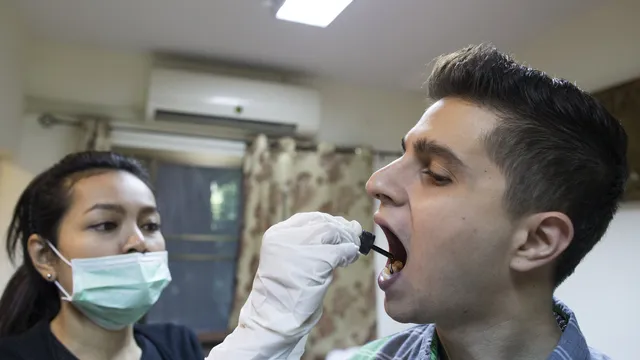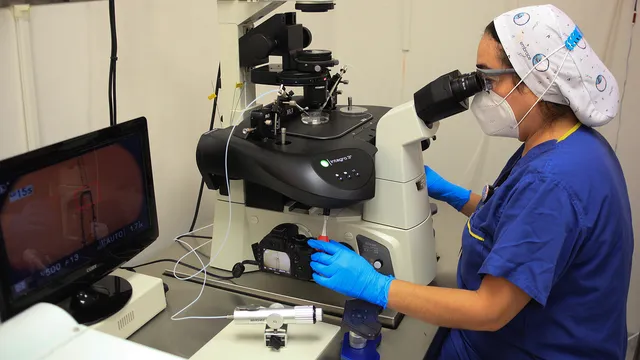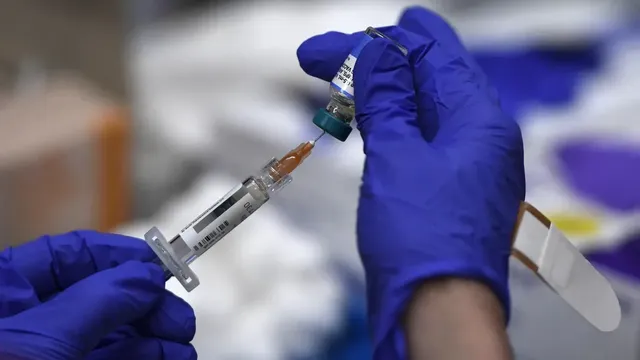According to the American Parkinson's Association, about 10-20% of Parkinson's cases are found in people under the age of 50, and almost half are diagnosed before the age of 40.
This younger form of the disease is known as early onset Parkinson's disease (EOPD) and presents a unique challenge when it comes to diagnosis and treatment.
One of the main reasons why the early onset form of Parkinson's is so difficult to detect early is that its symptoms often begin in an inconspicuous, silent manner. Unlike the hand tremors or stiff movements usually seen in older patients, younger people may first notice general aches and pains, tight muscles that feel like knots, or a slight trembling of the hand while resting.
Other signs may be slower movements, unsteady walking or reduced facial expressions. These changes can occur slowly over time, so people often assume they are just tired, overtired, or getting older.
Another symptom that can manifest years before clear movement problems is that of sleep. Researchers at Oregon Health & Science University have found that people with a condition called behavioral sleep disorder (REM), in which they physically act out in their dreams, often develop Parkinson's or related diseases.
This is especially common in military veterans with post-traumatic stress disorder. In fact, 96% of people diagnosed with REM eventually develop Parkinson's, sometimes decades later. While there is no single test that can diagnose Parkinson's at an early stage, new research is exploring brain scans and how they can help track changes in the movement of brain fluids, which can reveal signs of the disease before symptoms appear.
Mental health problems such as depression and anxiety can also be early clues. These are often written off as simple stress or life problems, but in some people are actually early signs of brain changes associated with Parkinson's. Other inconspicuous signs may include pain in the arms or legs that doesn't seem to have a physical cause. If these symptoms are missed or mistaken for other problems, the disease can quietly worsen.
Genetics play a large role in the early onset of Parkinson's. If someone has a family member with the disease, their own risk may be higher. Scientists have found several specific genes that are linked to Parkinson's, including LRRK2, PARK2 and PINK1.
Recently, researchers at BGI Genomics identified a new gene called CARS as another possible cause. Knowing if someone has one of these gene mutations could help doctors watch for the earliest signs of the disease and start treatment earlier.
But just having one of these genes doesn't mean a person will necessarily get Parkinson's. Other things, such as exposure to harmful chemicals, repetitive head trauma, or other environmental factors, can also affect who gets sick and who doesn't. That's why it's helpful to look at the whole picture - genes, health history, lifestyle and environment.
Thanks to modern technology, genetic testing is more accessible and can give people a detailed insight into their genetic make-up. Tests such as clinical whole exome sequencing (cWES) can help doctors detect gene mutations associated with Parkinson's.
If a person knows they are at higher risk, they can take steps early, such as eating healthy, exercising regularly and staying mentally active. These lifestyle changes can help slow the disease or the rate at which it worsens.
Unfortunately, many young people with Parkinson's feel isolated or misunderstood. Their symptoms may be overlooked or misdiagnosed because of the belief that Parkinson's only affects older people. This can lead to delays in getting the care they need. | BGNES

 Breaking news
Breaking news
 Europe
Europe
 Bulgaria
Bulgaria







